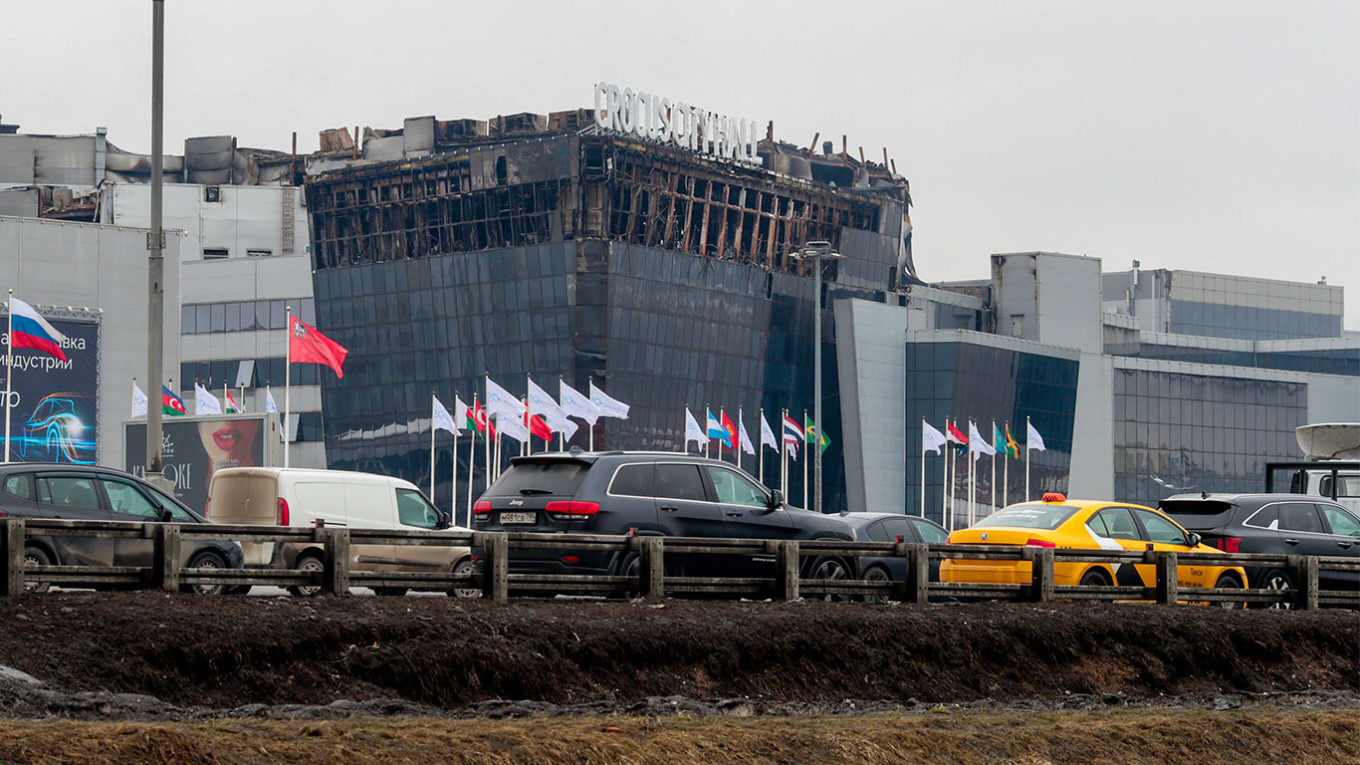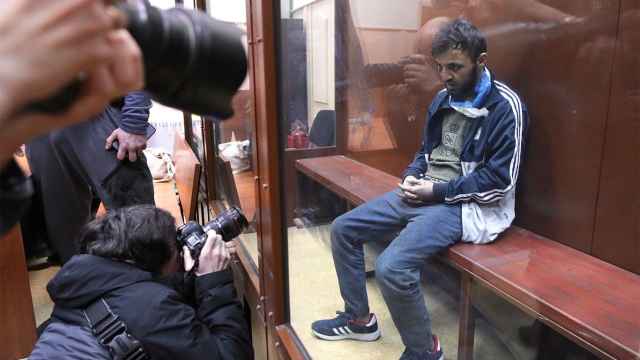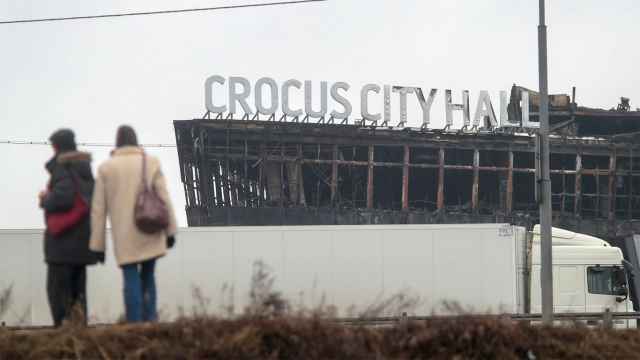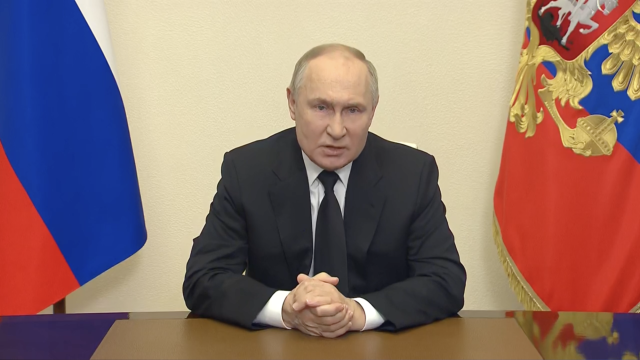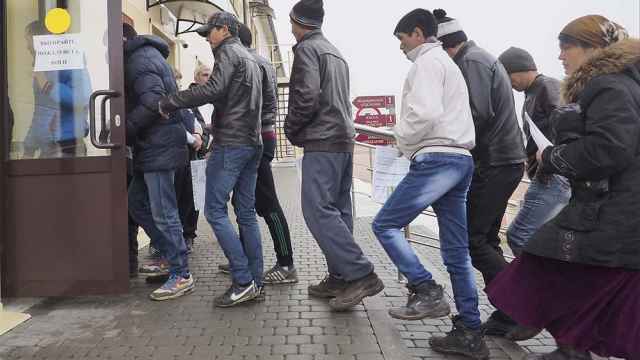MOSCOW – The March 22 attack on a concert venue near Moscow is likely to have extensive and far-reaching impacts on the country, experts warn.
The Crocus City Hall attack, Russia's deadliest in two decades, risks exacerbating already existing tensions in Russian society, leading to more state and law enforcement repression, as well as an increase in anti-migrant violence and xenophobia.
And as Russia enters the third year of its war against Ukraine, the attack — claimed by Islamic State (IS) militants but blamed by Russian authorities on Kyiv and “its allies” — could worsen Moscow’s already frigid relations with the West or lead to an escalation in the conflict.
Rise in anti-West sentiment
Top Russian officials have accused Ukraine and its Western allies of being partly responsible for the attack despite the fact that IS has claimed responsibility, while Kyiv strongly denies any involvement.
The U.S. had also warned Russian officials in advance that Crocus City Hall was a potential target for a terrorist attack, The Washington Post reported, citing U.S. officials familiar with the matter.
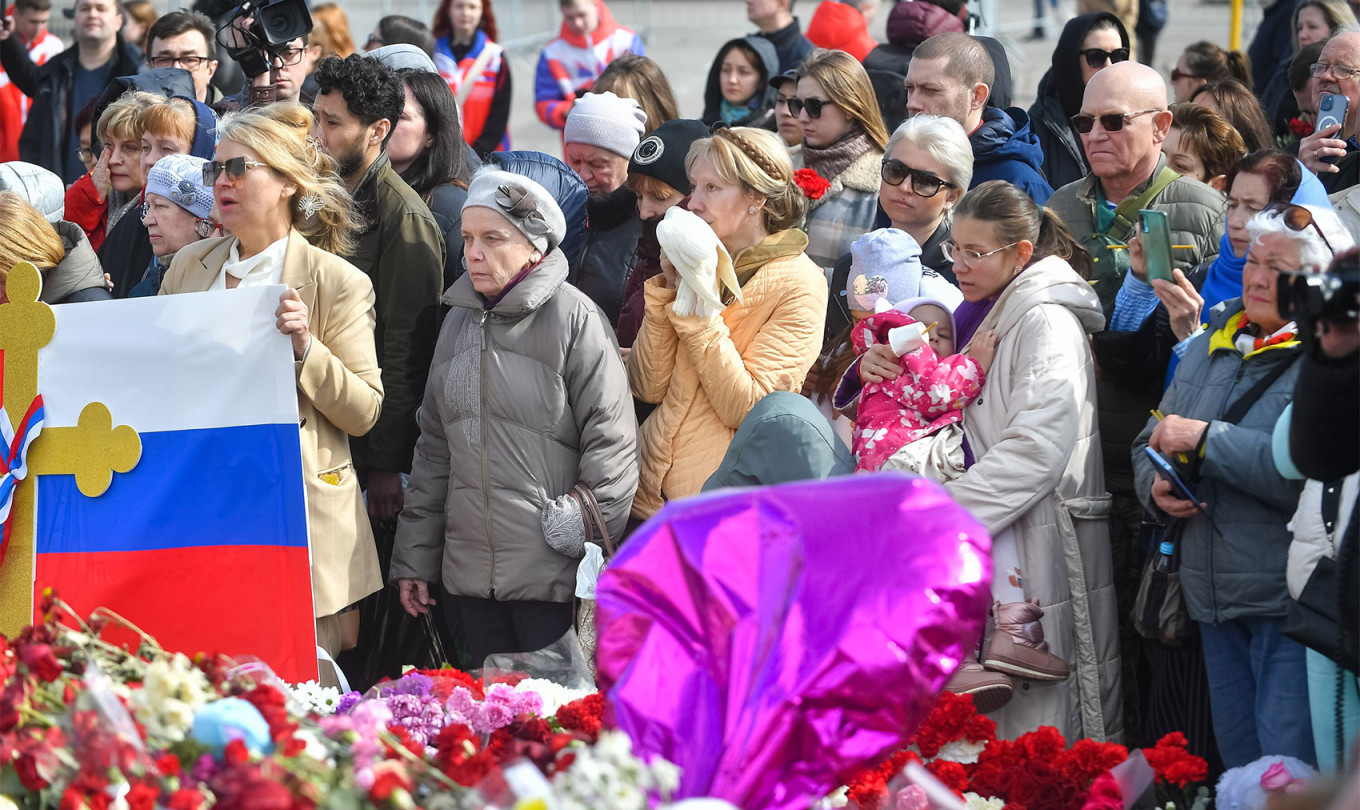
Sergei Naryshkin, the head of Russia's Foreign Intelligence Service (SVR), said that Moscow did receive a warning from the American authorities about a possible terrorist attack but claimed the information was not specific.
Security Council chief Nikolai Patrushev, an influential hawk in Putin’s inner circle, said that “traces lead to the Ukrainian special services,” adding that “everyone is well aware that the Kyiv regime is not independent and is completely controlled by the United States.”
The accusations appear to be resonating with some Russians.
Russia’s Defense Ministry said Wednesday that “around 16,000 citizens” have signed up to fight as contract soldiers in Ukraine over the past 10 days alone, claiming that “most candidates” said they were motivated to “avenge those killed” at Crocus City Hall.
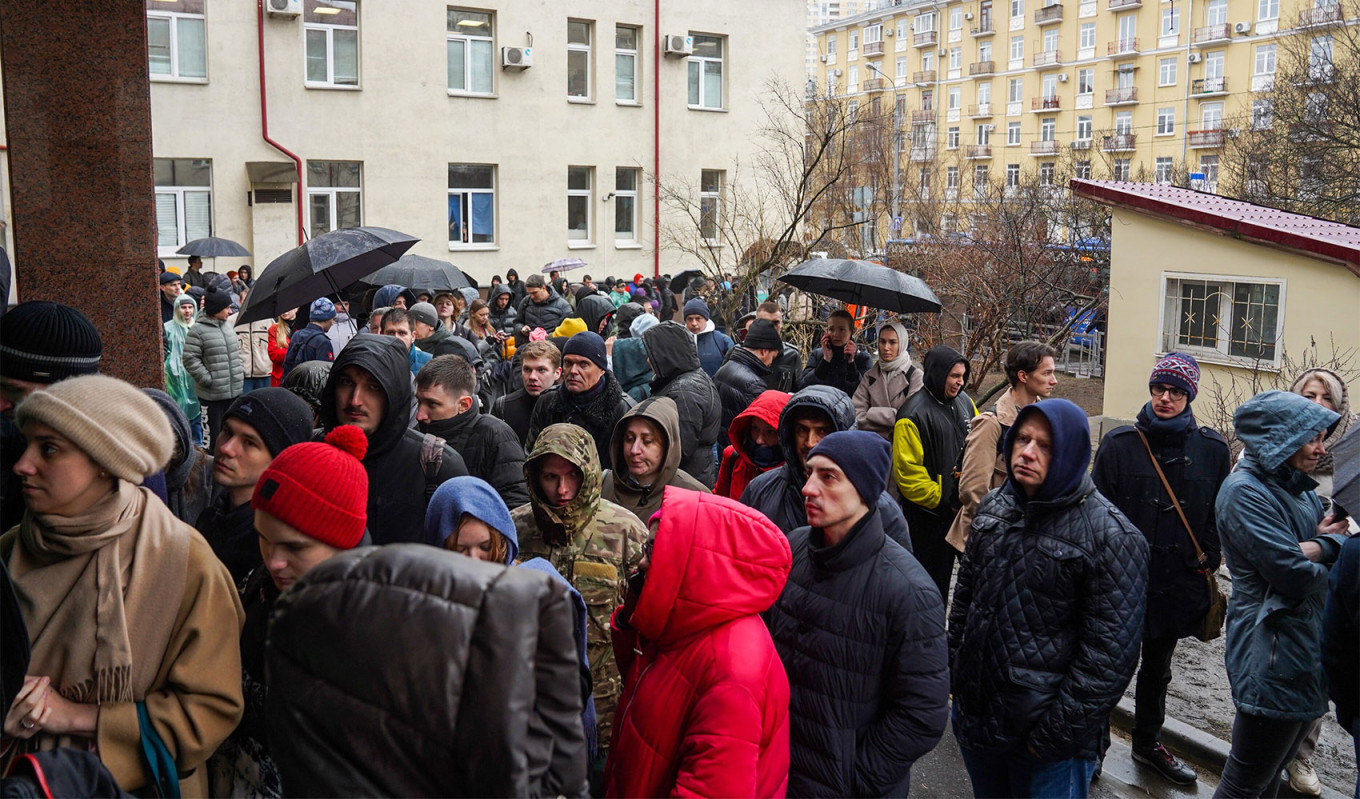
In the days following the attack, hundreds of people stood in long lines at several Moscow hospitals to donate blood to the wounded.
At least three people who came to donate blood told The Moscow Times that they believe in the aftermath of the attack “it is important to show strength and unity.”
One Muscovite added that "the country should unite in its war against the enemy," without specifying who the enemy is.
‘Normalization’ of torture
Following the tragedy, the Russian government faced widespread pressure to respond decisively.
Four suspected shooters were quickly arrested following the attack along with with several suspected accomplices.
Two days after the attack, the four men accused of killing more than 140 people appeared in a Moscow court with visible bruises and other injuries that human rights activists said were clear evidence of torture.
One of the suspects was seen being wheeled into court on a gurney, accompanied by a doctor and reportedly unconscious. Another was seen in court with a bandage where his ear should be after an unverified graphic video showed what appeared to be law enforcement agents cutting off his ear after he was detained.
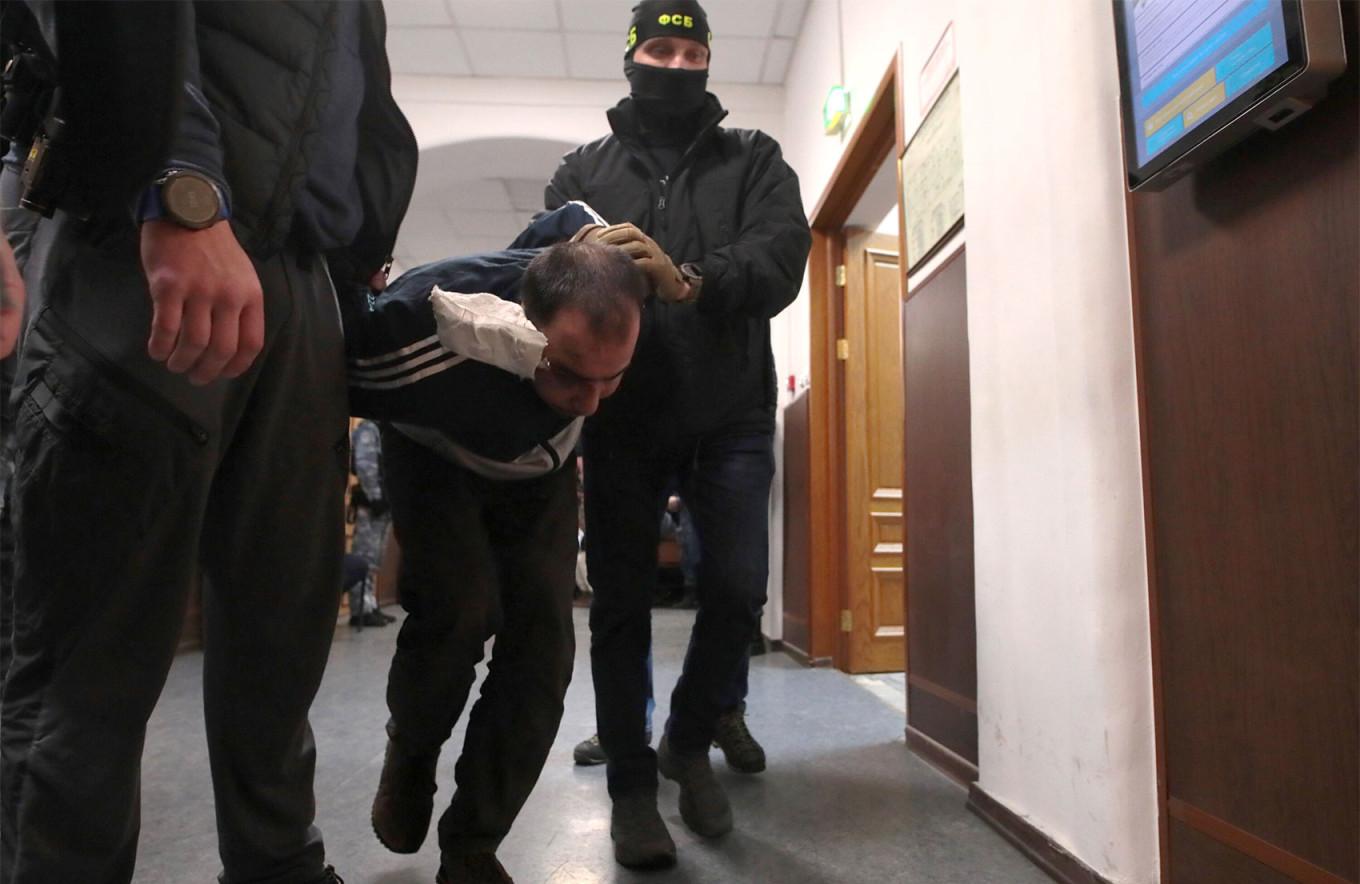
When asked what the suspected gunmen’s treatment means for Russia, The Crew Against Torture, a prominent human rights NGO that monitors cases of torture, warned that the police’s brutal handling of the suspects could further “normalize” violence in Russian society.
“We witnessed one of the most large-scale and brutal attacks in the last 20 years and witnessed one of the most blatant tortures that followed this attack,” said lawyer and head of Crew Against Torture Sergei Babinets.
“The message [to society] is that you can behave cruelly and inhumanely with such people, without even fully understanding whether or not they are guilty and what role they played,” Babinets told The Moscow Times. “Instead of a proper investigation, they were subjected to violence.”
He warned that brutalizing suspected criminals sets a precedent that puts people who are believed to have committed less serious offenses at risk of the same treatment.
“This could lead to a dangerous precedent where law enforcement and security forces may adopt similar tactics in investigating other types of offenses," he said.
Death penalty returns to public debate
Following the attack, several public figures and officials have reopened the debate about restoring capital punishment and whether it is possible to execute the suspected gunmen.
Their comments led critics to warn of potential unforeseen outcomes — such as cases of miscarriage of justice — given Russia’s already liberal application of counterterrorism legislation.
The death penalty is technically legal in Russia but has been under a moratorium confirmed by the Constitutional Court since 1999.
Shortly after the Crocus City Hall attack, former President Dmitry Medvedev, who has become one of the most hawkish voices on Russia’s war in Ukraine, said that the suspects “should be killed.”
“Should we kill them? We should. And we will,” he said. “But it is much more important to kill everyone involved. Everyone. Those who paid, those who sympathized, those who helped. Kill them all.”
Ex-presidential candidate Leonid Slutsky, who heads the nationalist Liberal Democratic Party (LDPR), also called for lifting the moratorium on the death penalty at a plenary meeting in the State Duma.
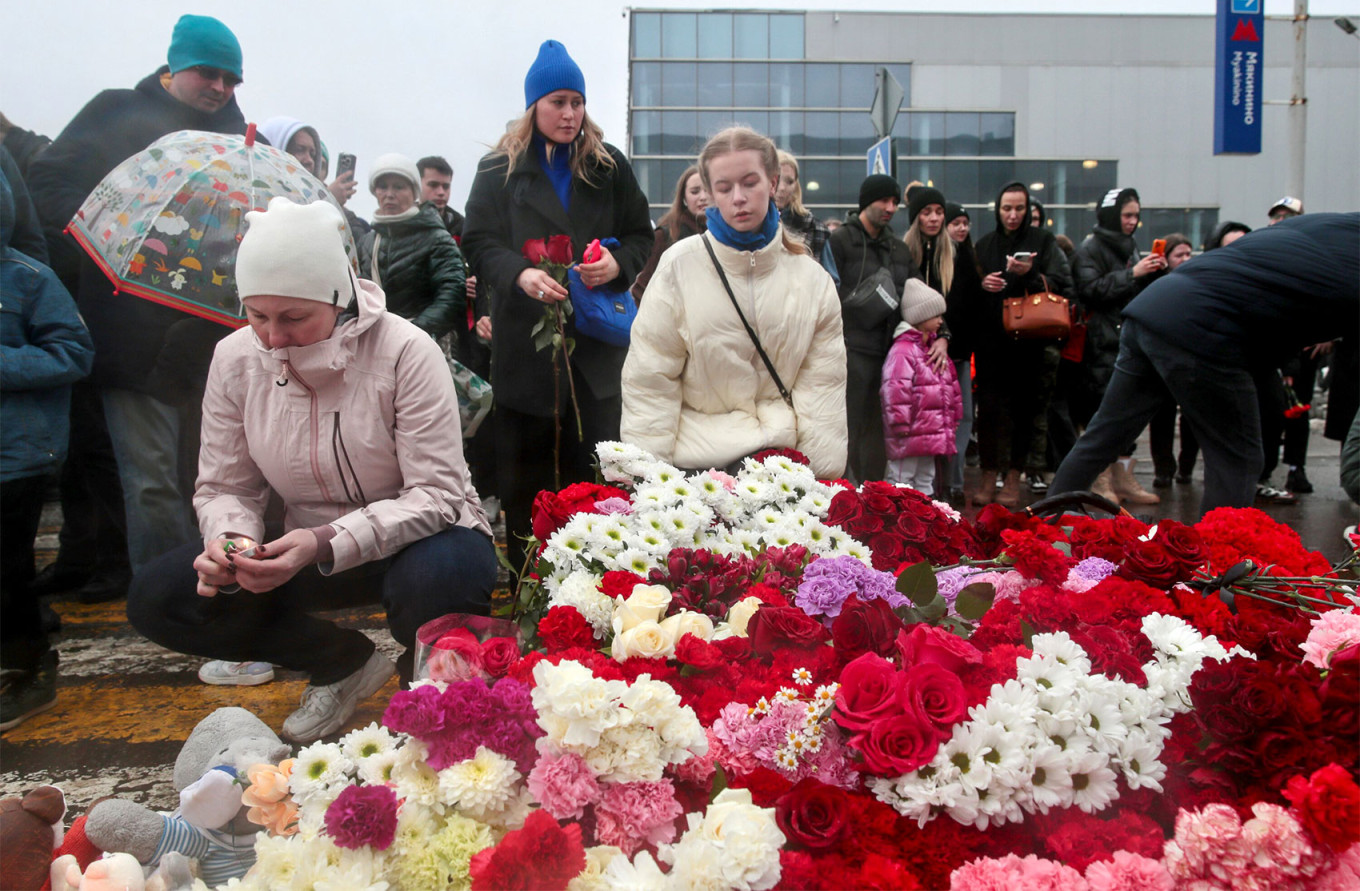
Other officials have called for restraint, however. Lawmaker Pavel Krasheninnikov said that a decision with such wide-reaching consequences “must be made with a cool head” and not at a time when “emotions prevail.”
The Kremlin said it would not take part in the discussion about lifting the moratorium on the death penalty.
According to a survey conducted in 2022, 43% of respondents approved of the use of capital punishment in Russia.
At least two people who came to lay flowers at the makeshift Crocus City memorial told The Moscow Times that the death penalty could be an “appropriate” punishment if approved by the government.
Fears of rising xenophobia
Anti-immigrant sentiment appears to be on the rise after the four suspected gunmen were identified as citizens of the Central Asian republic of Tajikistan.
The Civic Assistance Committee, an NGO that assists refugees and migrants in Russia, told The Moscow Times that some migrants “are scared to [leave the house] to go to school.”
After the suspects’ identities were published, reports emerged of security services conducting widespread raids on migrant communities nationwide.
In Russia’s second-largest city of St. Petersburg, authorities have been deporting migrants en masse following the attack, the legal rights group Perviy Otdel said.
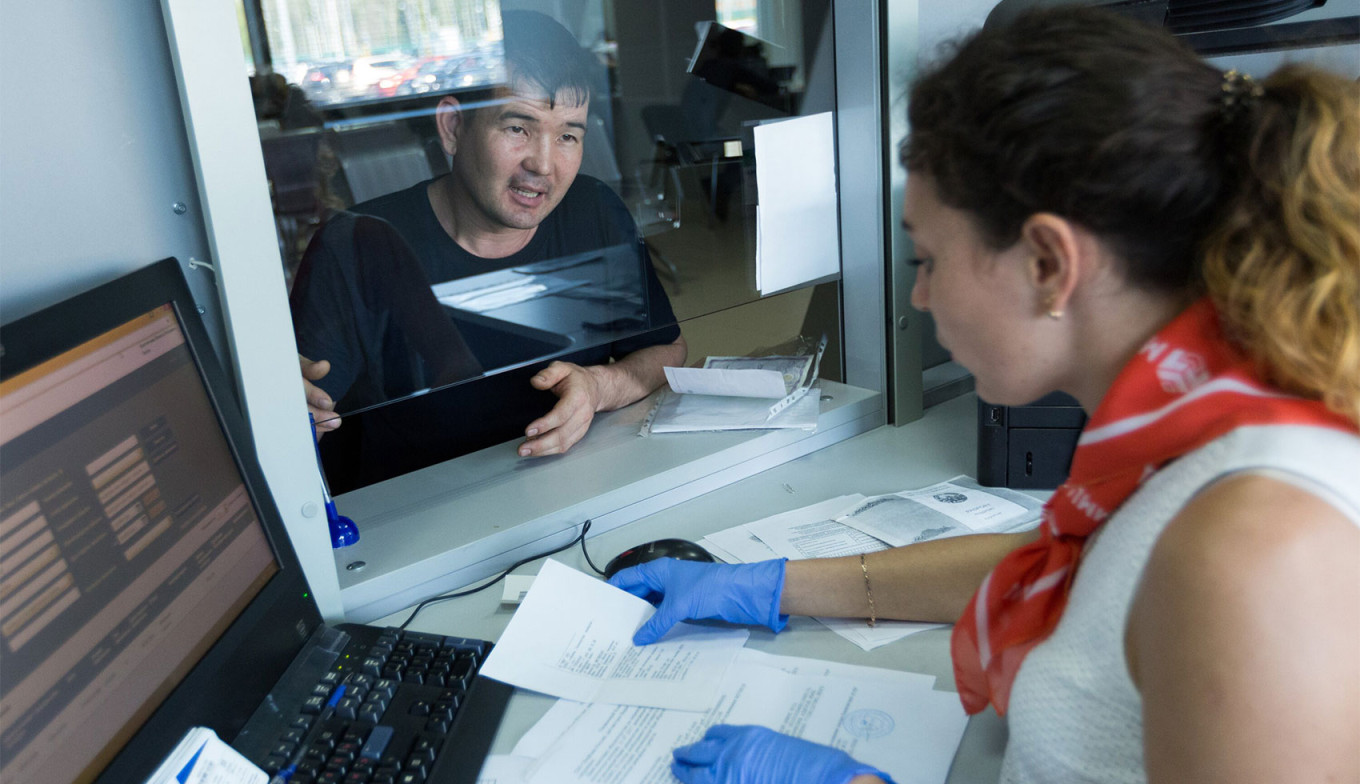
In Yekaterinburg, local media reported that migrants who obtained Russian citizenship and went to replace their driver’s licenses with Russian ones — as is legally required — were handed summonses to the military registration and enlistment office.
Russian officials are also considering the creation of a new department tasked with overseeing interethnic and migration policies, the Vedomosti business daily reported, citing three sources close to the presidential administration and two sources close to the government.
Russia’s Interior Ministry also submitted a draft federal law to the government that would limit temporary stays for foreigners in Russia to a maximum of 90 days per year.
The proposed law would also mandate all foreign citizens to be photographed and provide their fingerprints upon entering the country.
A Message from The Moscow Times:
Dear readers,
We are facing unprecedented challenges. Russia's Prosecutor General's Office has designated The Moscow Times as an "undesirable" organization, criminalizing our work and putting our staff at risk of prosecution. This follows our earlier unjust labeling as a "foreign agent."
These actions are direct attempts to silence independent journalism in Russia. The authorities claim our work "discredits the decisions of the Russian leadership." We see things differently: we strive to provide accurate, unbiased reporting on Russia.
We, the journalists of The Moscow Times, refuse to be silenced. But to continue our work, we need your help.
Your support, no matter how small, makes a world of difference. If you can, please support us monthly starting from just $2. It's quick to set up, and every contribution makes a significant impact.
By supporting The Moscow Times, you're defending open, independent journalism in the face of repression. Thank you for standing with us.
Remind me later.



